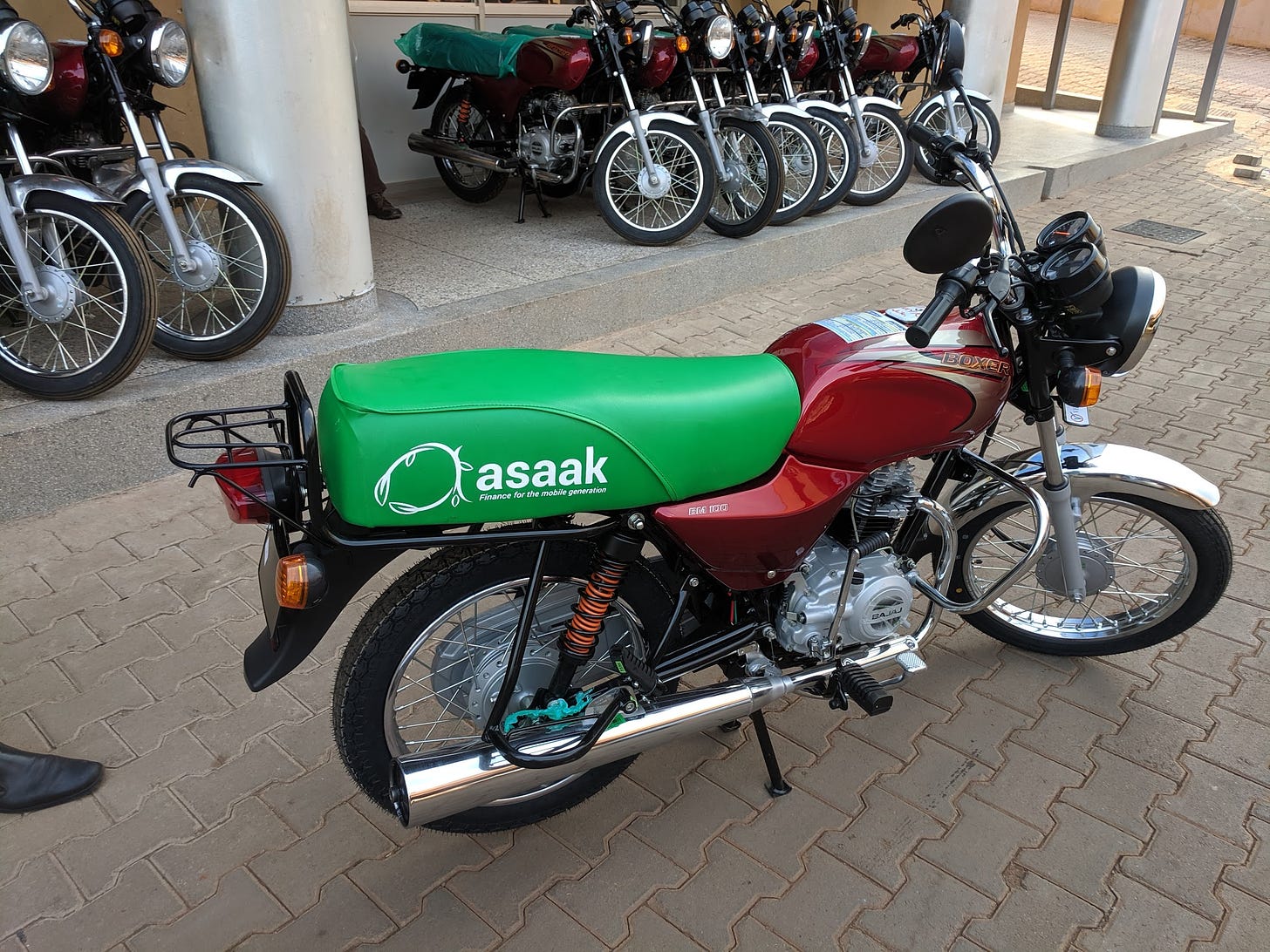🔅 Tate Modern's Massive Ghanaian Installation, Egg-pocalypse in South Africa
Plus, IMF's Meeting with ADB & A Missionary Artefact Dilemma
Photo of the day
Mogadishu, Somalia

Markets:
🟢 Nigerian SE: 67,100.49 (+0.17%)
🔴 Johannesburg SE: 73,840.50 (-0.15%)
🔴 Ghana SE: 3,141.66 (-0.02%)
🔴 Nairobi SE: 93.00 (-0.64%)
🟢 US S&P 500: 4,358.78 (+0.01%)
🟢 Shanghai Composite: 3,078.96 (+0.12%)
*Data accurate as of the close of markets across the continent
Brief & Bright: Africa's Top Five
Tate Modern's Latest Installation: An Ambitious Ghanaian, a Big Space, and a Whole Lot of Bottle Caps
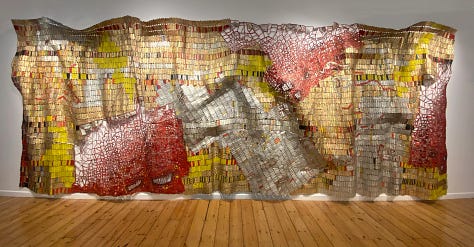
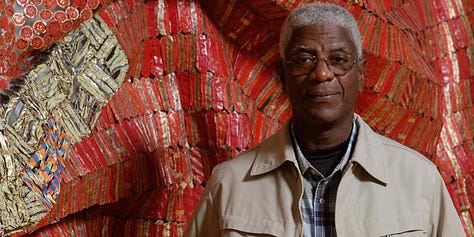
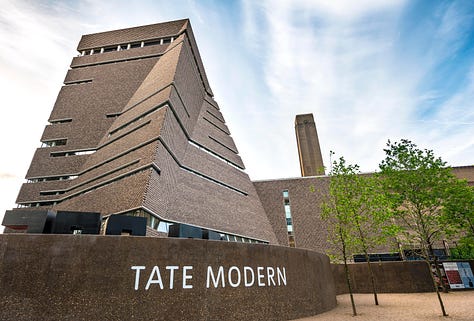
When the giant Tate Modern art gallery asked Ghana's El Anatsui to create their annual Hyundai Commission, they probably didn't expect him to say "Sorry, your space is just too small for my idea." But that's precisely what happened. However, after a couple of years, Anatsui is finally ready to exhibit at the Tate's Turbine Hall with his largest installation. As with all of his signature rippling sculptures, he is using recycled materials like milk-tin lids, cassava graters, iron nails, and bottle caps. But don't be fooled by the golden threads and shiny jewels; El Anatsui's art is a commentary on trade and consumerism. For the exhibition, he was inspired by the "slave castles" along Ghana's coast, where enslaved people were held, but where he also always found chapels within the same complex. El Anatsui is from Ghana. Born in 1944, he is the son of a master weaver and has gone on to have a glittering career sculpting tapestries. Now, at 79 years old, he's ready for his biggest show yet.
The Two Things That Stand Out From IMF's Meeting With the ADB
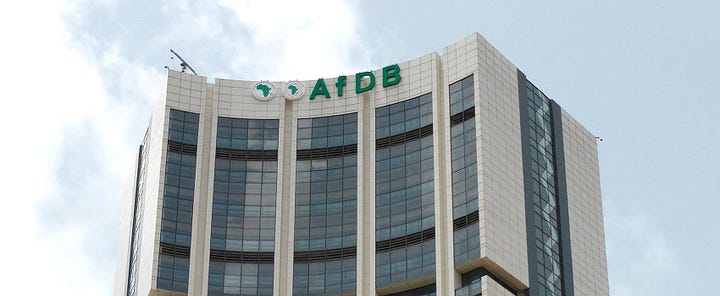
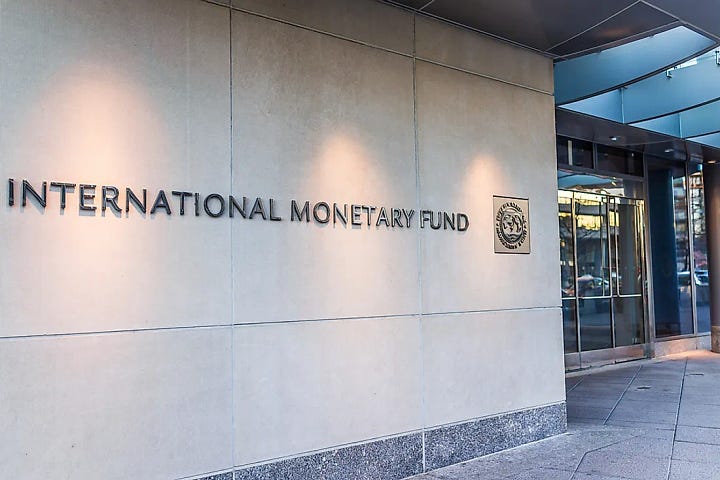
The IMF and the African Development Bank Group (ADB) had a meeting in Cote d’Ivoire, and it was a pretty big deal. The first thing that stands out is that this was the first time EVER an IMF head visited the ADB headquarters since it was established in 1964. The second thing that stands out is what they talked about: The ADB president, Dr Akinwumi Adesina, urged countries in Africa to stop borrowing loans backed by their natural resources. He thinks these loans are shady, expensive, and make it hard to pay them back. The IMF boss, Kristalina Georgieva, agreed and said they would “come with a strong voice to tell countries not to create avenues for predatory and enslaving loans.” This issue will also be discussed at the Global Sovereign Debt Roundtable, which sounds like a super important club made up of fancy people from the IMF, World Bank, and G20. For the first time this year, the African Union will be a permanent member.
A Missionary's Collection Dilemma: How To Return Artifacts from A Colonial Era
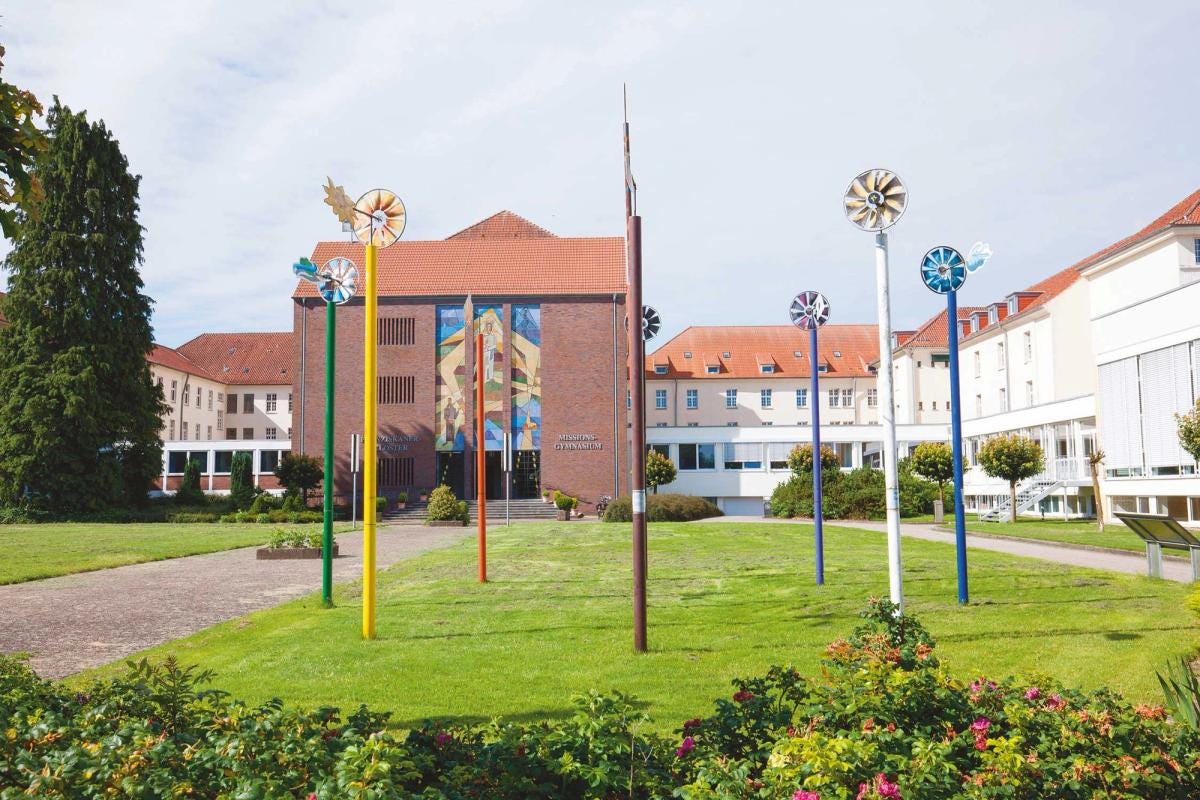
What do you do with a collection of artefacts brought home by missionaries during the colonial era? Well, if you're Germany, you call in the big guns: a church project aimed at helping monasteries and convents inventory, research, and potentially return these objects to their countries of origin. As you can imagine, many of these objects were acquired in less-than-ethical ways, with missionaries sometimes taking advantage of unequal power dynamics. Not all the artefacts are on display these days, partly because the religious communities responsible for them are strapped for resources; many objects are tucked away in basements. Because of this, there is little inventory to guide researchers on where the items came from, although they are confident the many written records from the time (missionaries communicated extensively through letters) will help trace the provenance of the objects and return them to their rightful homes.
Egg-pocalypse in South Africa: The Bird Flu Outbreak That's Emptying Shelves

Move over avocado toast, there's a new hot commodity in South Africa: eggs. A deadly bird flu outbreak has killed millions of chickens and egg supplies are running low. This means prices are expected to rise, which is not great news for the millions of impoverished people who rely on eggs as an affordable source of protein. Supermarkets are running out and online shopping sites are showing "unavailable" or "low in stock" messages. Meanwhile, small businesses are struggling to keep up with the demand for eggs in cakes and other baked goods.
Ugandan Startup Takes on Mexican Market: From Motorcycles to Credit Lines
Kaivan Khalid Sattar, founder of Asaak, had big plans for his motorcycle financing company in East Africa. But after a road trip across the region, he decided to take his business elsewhere — to Latin America instead. Mexico is where he found himself, in a market that typically attracts investors from Latin America, the US, or Europe, not Africa. Asaak acquired a local company that leased cars and electric motorcycles to gig workers, giving him instant access to a fleet of 150 e-bikes. Sattar was shocked to find that even in a more advanced country like Mexico (10 times the size of Uganda), people paid 200-300% interest yearly on loans. Asaak's model aims to provide a more affordable and accessible option for gig workers to acquire essential job tools. You can start with a smartphone and build up to a car or motorcycle once you pay your monthly dues and build up your credit. The former manager of the acquired company is optimistic about the potential for success in the Mexican market, especially with the rise of electric vehicles. Looks like Asaak is ready to ride the waves of success in Mexico.
Food for Thought
“Africa has her mysteries, and even a wise man cannot understand them. But a wise man respects them.”
— Miriam Makeba




